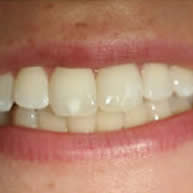Wisdom teeth got their name because they are the final teeth to develop, usually in the late teens to early twenties, at a time when a person becomes fully mature or “wise.” Wisdom teeth are the third and final set of molars in the very back of the mouth. Most people have four total (two upper and two lower), but others never develop them at all. Wisdom teeth can be a valuable chewing aid, but often they are poorly aligned or don’t develop properly.
How do I know if I have them?:
Unless you start to feel them breaking through, you may not know whether you have wisdom teeth or not. Ask your dentist to examine you to see if these teeth are healthy and properly positioned. An x-ray may be required, and your dentist may refer you to an oral surgeon to be evaluated further.
Do wisdom teeth hurt?:
You don’t always feel anything with your wisdom teeth, but sometimes they are very bothersome. You may experience pain when they erupt in awkward positions, especially if the teeth rub against your mouth. Other problems include stiffness in the area, infected swelling of the gums, tooth decay, gum disease, and tooth crowding.
Why remove them?:
Your dentist or oral surgeon might suggest that your wisdom teeth be extracted. They can often predict if your wisdom teeth may crowd or damage other teeth, your jawbone, or nerves. Sometimes removal is appropriate before problems arise, in an effort to avoid more complicated or painful extractions later. Removal is usually simpler and less risky in young people. If your wisdom teeth are not extracted, it’s important for your dentist to continue monitoring them because problems may develop later.
What does impacted mean?:
Wisdom teeth may be impacted, which means they are enclosed in the soft tissue or jawbone or they only partially erupt through the gum. Impacted wisdom teeth are almost always removed to avoid risks of infection, tooth decay, and gum disease.
Schedule your appointment at our Clinton NJ dental office






